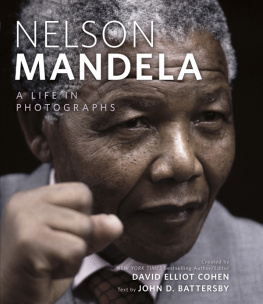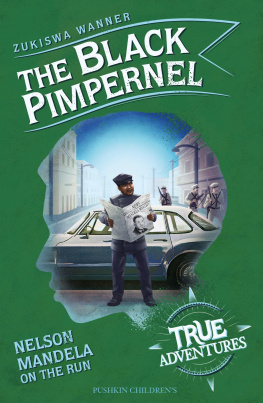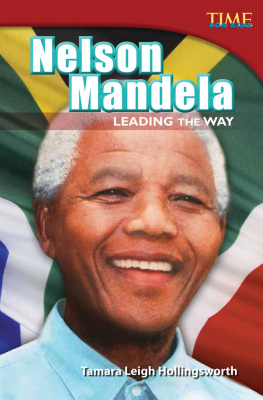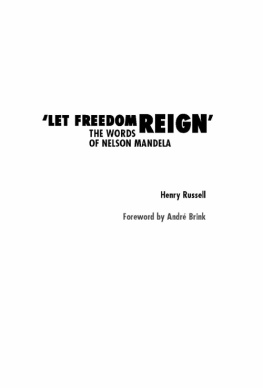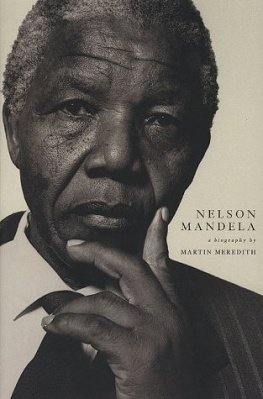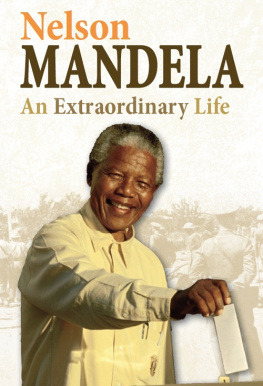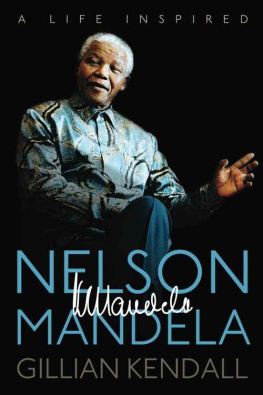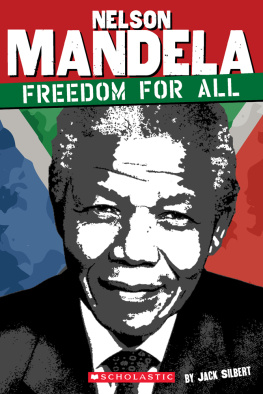In the Words of
Nelson Mandela
Compiled and edited by
Jennifer Crwys-Williams

CONTENTS
Collection copyright 2010 by Jennifer Crwys-Williams
All rights reserved. No part of this book may be used or reproduced in any manner whatsoever without
written permission from the publisher except in the case of brief quotations embodied in critical articles
or reviews. For information address Walker & Company, 175 Fifth Avenue, New York, NY 10010.
Published by Walker Publishing Company, Inc., New York
LIBRARY OF CONGRESS CATALOGING-IN-PUBLICATION DATA HAS BEEN APPLIED FOR .
ISBN: 978-0-8027-7930-4 (hardcover)
First published in Great Britain in 2010 by Profile Books Ltd. (UK)
First published in the United States by Walker & Company in 2011
This e-book edition published in 2011
E-book ISBN: 978-0-8027-7931-1
Visit Walker & Companys Web site at www.walkerbooks.com
This book is dedicated to the children of South Africa in the hope that as they grow they may find inspiration from the thoughts of Nelson Rolihlahla Mandela and that, in his words on receiving the Nobel Peace Prize, they and other children the world over, may play in the open veld, no longer tortured by the pangs of hunger or ravaged by disease or threatened with the scourge of ignorance, molestation and abuse children are the greatest of our treasures. In particular, I hope this little book inspires the children in my own family, living in both the old and the new worlds: Amber, Cassandra, Sebastian, Phoebe and Blaise.
My special thanks to the journalists who, over the years, have interviewed Nelson Mandela and who have provided me with much of the material used in this book. It is no exaggeration to say that without their help this book would not have been possible.
I received substantial amounts of help for the first edition of this book from Susan Segar, then political correspondent of The Natal Witness.
Thanks too to Carole Blake of Blake Friedmann & Associates, who has been generous with her support and interest.
Nelson Mandela is the worlds role model. He has been described as the worlds last great superhero, an icon of forgiveness, compassion, magnanimity and reconciliation for the entire globe, a myth, an icon of righteousness, and, by Bill Clinton when celebrating his eighty-fifth birthday in July 2003, You have taught us the freedom of forgiveness, the futility of coercive power and the joy of service. His wife, Graa Machel, has said pointedly that he is a symbol but not a saint.
However he is described, he has become a towering symbol of reconciliation and sacrifice. Above all, he is perceived as a man who did his duty.
With the reach and might of twenty-first-century communications, the myth of the man sometimes conceals the very real human being who exists beneath the hyperbole. How better, then, to let Nelson Mandela speak for himself in his own unembellished words?
Perhaps his thoughts, reproduced on these pages, and honed over many years of tribulation, will inspire people, young and old, monied and impoverished, the world over.
In particular, I hope it will inspire people who have had few role models in their lives, and who have suffered their own apartheids in their own countries.
Jennifer Crwys-Williams
I will continue fighting for freedom
until the end of my days.
Women have the right to decide what they want to do with their bodies.
Dont tempt me to beat my chest and to say this is what I have done!
In spite of interviewers the world over hoping for intimate revelations, Nelson Mandela dislikes speaking about himself and invariably refers to the collective meaning, of course, the African National Congress
I must not be isolated from the collective who are responsible for the success.
When I make a mistake, I normally say: Its these young chaps, and when they do something good, I say: This is the man.
To illustrate his point, Madiba beat his chest this was in an internationally televised interview, December 1997: Mandela Meets the Media
For centuries, an ancient continent has bled from many gaping sword wounds.
No doubt Africas renaissance is at hand and our challenge is to steer the continent through the tide of history.
The people of the continent are eager and willing to be among the very best in all areas of endeavour.
The peoples of resurgent Africa are perfectly capable of deciding upon their own future form of government and discovering and themselves dealing with any dangers which might arise.
We need to exert ourselves that much more, and break out of the vicious cycle of dependence imposed on us by the financially powerful; those in command of immense market power and those who dare to fashion the world in their own image.
Africa, more than any other continent, has had to contend with the consequences of conquest in a denial of its own role in history, including the denial that its people had the capacity to bring about change and progress.
It would be a cruel irony of history if Africas actions to regenerate the continent were to unleash a new scramble for Africa which, like that of the nineteenth century, plundered the continents wealth and left it once more the poorer.
Conflict threatens not only the gains we have made but also our collective future.
The African rebirth is now more than an idea its seeds are being sown in the regional communities we are busy building and in the continent as a whole.
Can we continue to tolerate our ancestors being shown as people locked in time?
Africa yearns and deserves to redeem her glory, to reassert her centuries-old contribution to economics, politics, culture and the arts; and once more to be a pioneer in the many fields of human endeavour.
One destabilising conflict anywhere on the continent is one too many.
For as long as the majority of people anywhere on the continent feel oppressed, are not allowed democratic participation in decision-making processes, and cannot elect their own leaders in free and fair elections, there will always be tension and conflict.
A continent which, while it led in the very evolution of human life and was a leading centre of learning, technology and the arts in ancient times, has experienced various traumatic epochs, each one of which has pushed her peoples deeper into poverty and backwardness.
We cannot abuse the concept of national sovereignty to deny the rest of the continent the right and duty to intervene when, behind those sovereign boundaries, people are being slaughtered to protect tyranny.
He said this in June 1998 in his address to the Organisation of African Unity
We should treat the question of peace and stability on our continent as a common challenge.
Africa has long traversed past a mindset that seeks to heap all blame on the past and on others.
Teach the children that Africans are not one iota inferior to Europeans.
From his seminal No Easy Walk to Freedom speech, 21 August 1953
The lack of human dignity experienced by Africans is the direct result of the policy of white supremacy.


